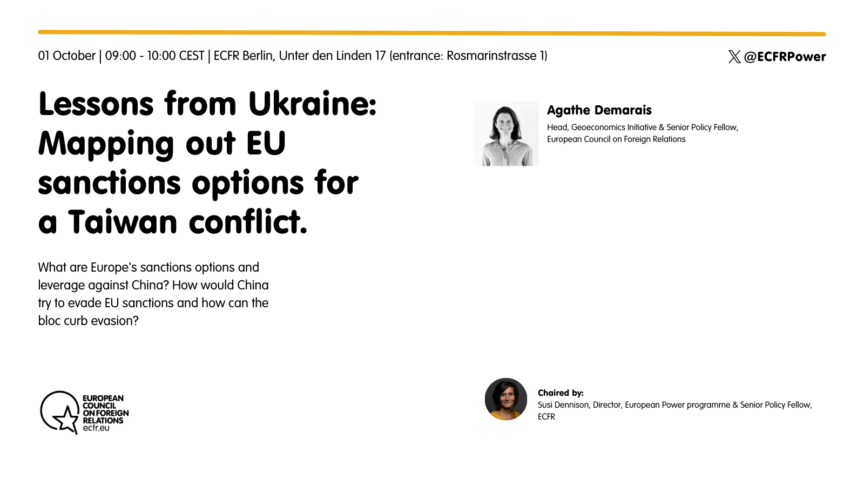
Lessons from Ukraine: Mapping out EU sanctions options for a Taiwan conflict
Picture this scenario: the year is 2028 and Western intelligence services have reached an alarming conclusion. Credible sources suggest that China is about to impose…
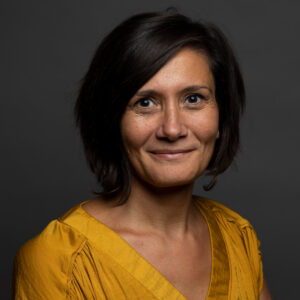
Senior Director for Strategy and Transformation
Senior Policy Fellow
EU foreign policy; climate and energy; cohesion and politics in the EU; migration
English and French
Susi Dennison is a senior policy fellow at the European Council on Foreign Relations. Her topics of focus include strategy, politics and cohesion in European foreign policy; climate and energy, migration, and the toolkit for Europe as a global actor.
At ECFR, Dennison acts as chief of staff to the Director and leads the European Power programme as well as the organisational growth and transformation process. She has been with ECFR since 2010 in a range of roles including developing ECFR’s work with public opinion data on foreign policy, leading ECFR’s foreign policy scorecard project for five years, working on North Africa in the early years of the MENA programme, and exploring how the EU can pursue a values-based foreign policy which supports human rights and democracy in a contested world. Before joining ECFR, Dennison worked for Amnesty International and HM Treasury in the United Kingdom.

Picture this scenario: the year is 2028 and Western intelligence services have reached an alarming conclusion. Credible sources suggest that China is about to impose…
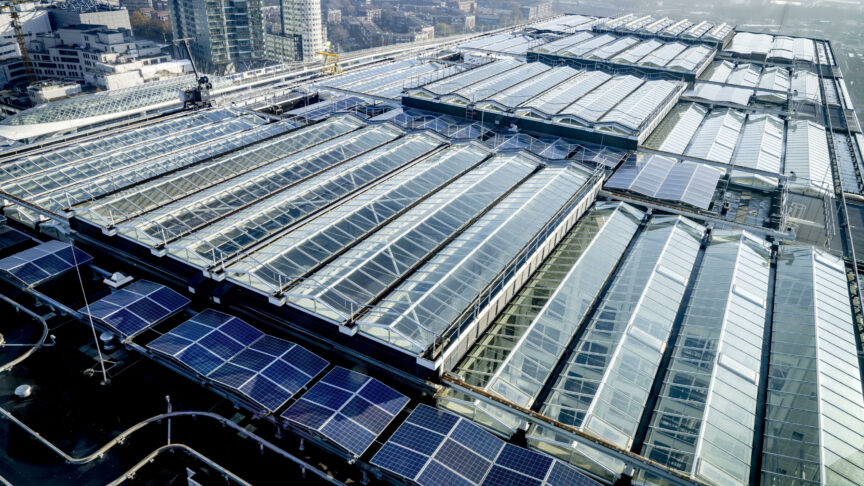
The EU cannot afford to stay divided on its green industrial policy. Instead, the next European Commission should spearhead a common and credible approach to ensure the bloc catches the next green technology wave
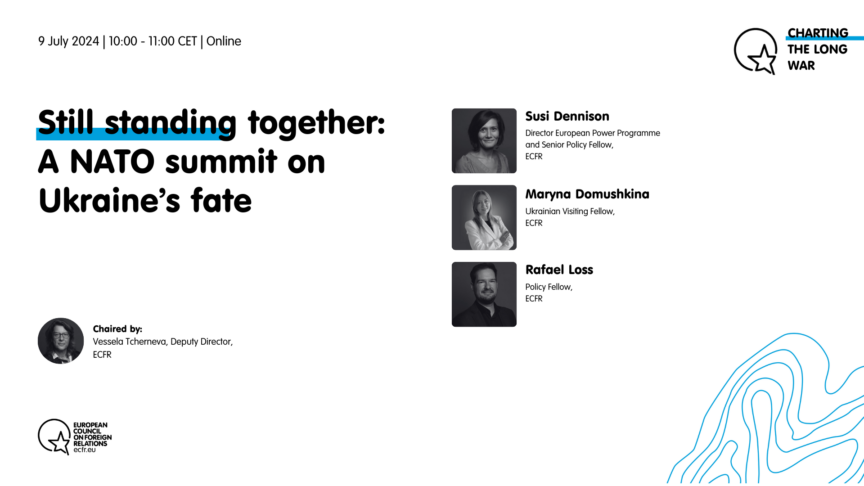
As leaders are about to take pivotal decisions for Ukraine’s fate at the NATO summit, join us for a discussion about pathways and policy options for…
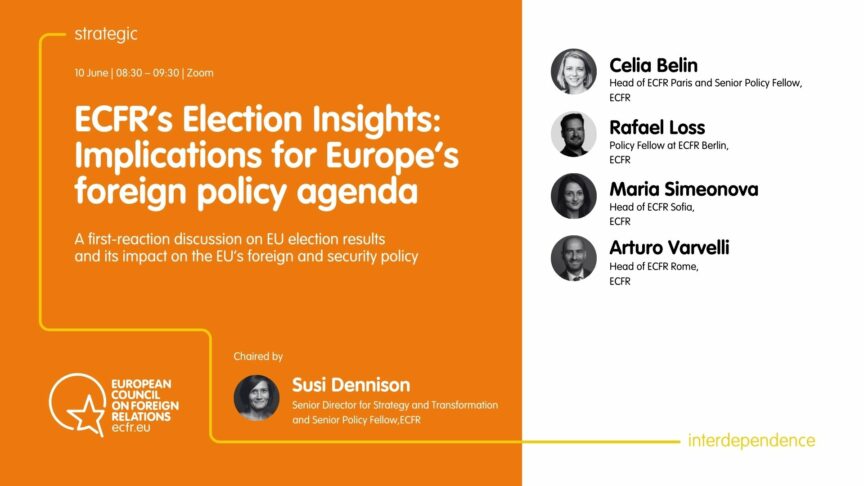
This webinar will provide a snapshot analysis of election results and their implications for Europe’s foreign policy and security agenda. Featuring perspectives from selected ECFR…
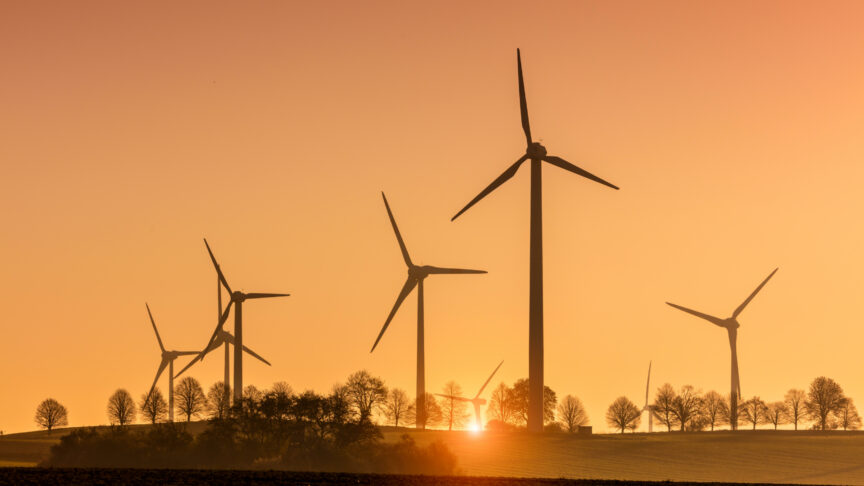
After the European Parliament election, the incoming EU institutions will likely prioritise security and competitiveness, complicating the path to climate action. Climate progressives will need compelling narratives, strategic resourcing, and diplomatic engagement to advance the best possible climate agenda over the next five years
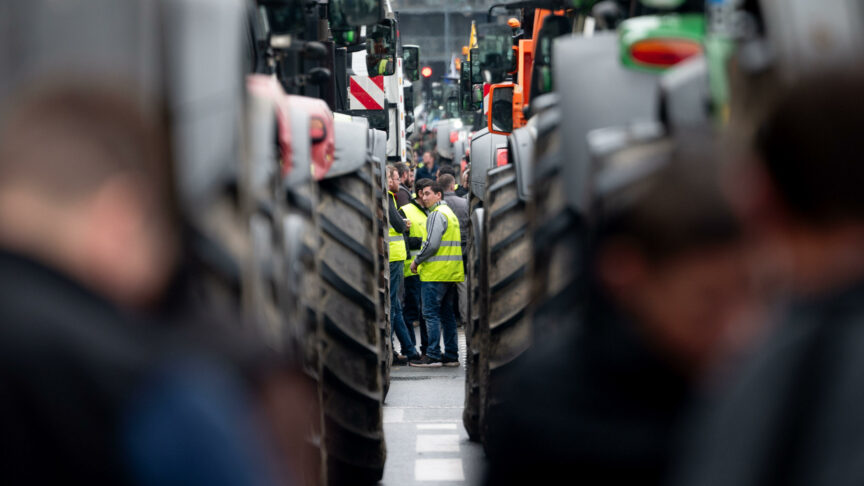
As farmers’ protests spread across the EU, European leaders will need political courage to implement the next phase of the European Green Deal
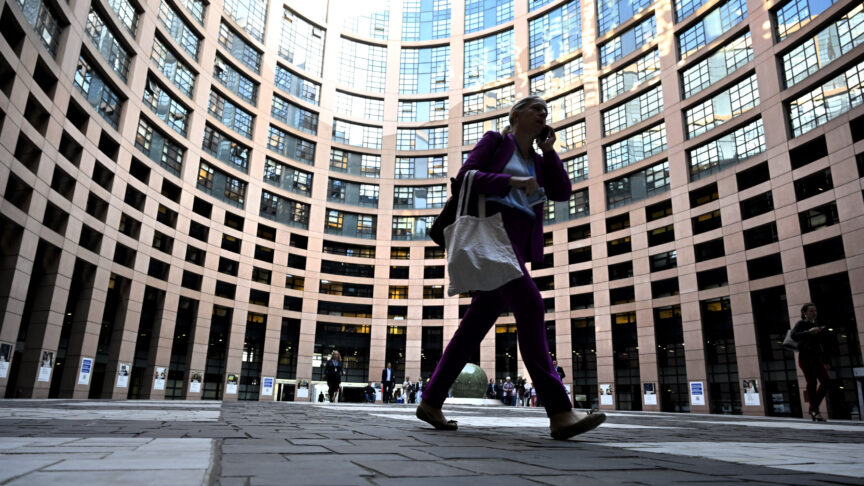
The 2024 European Parliament elections will see a shift to the right in many countries and could mean that a populist right coalition emerges with a majority for the first time
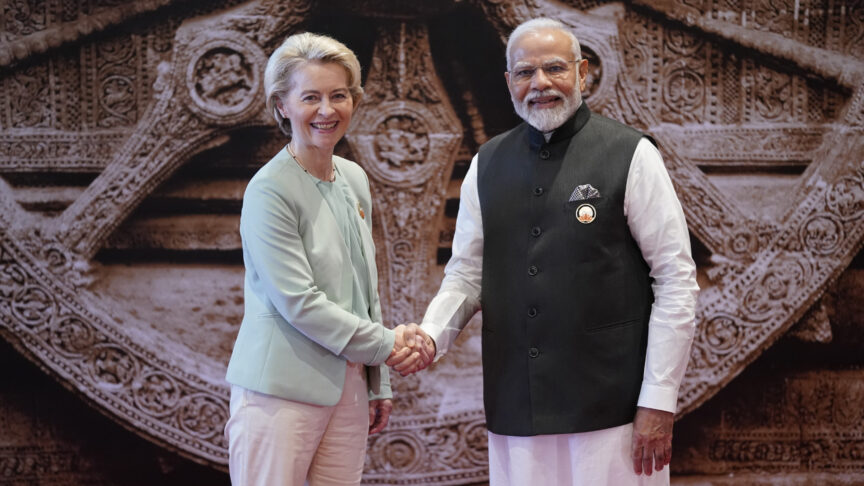
Middle powers are shaping a fragmented world for which Europe is ill prepared. To protect its interests and values, the EU needs a foreign policy strategy that emphasises its wide range of interdependencies
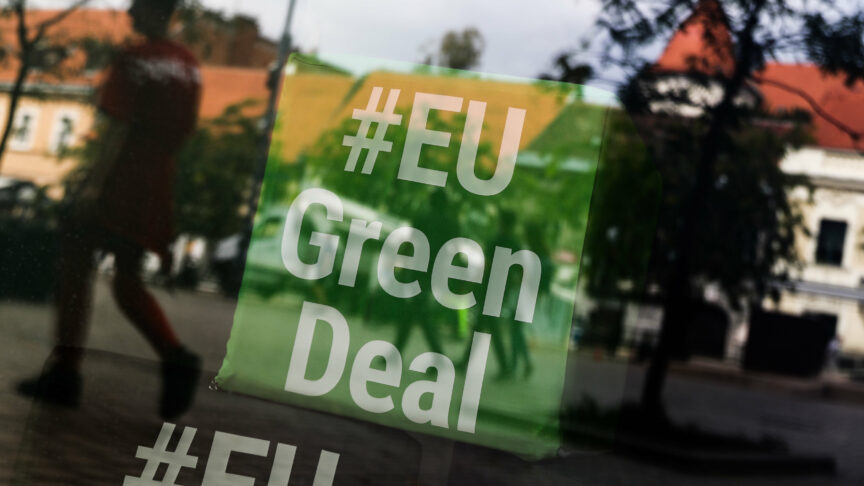
In the run-up to a busy election year in Europe, there is a clear risk of a backlash against climate action. European policymakers need to emphasise the benefits of climate action to voters and update their policy instruments to the changing circumstances to keep the European Green Deal on course
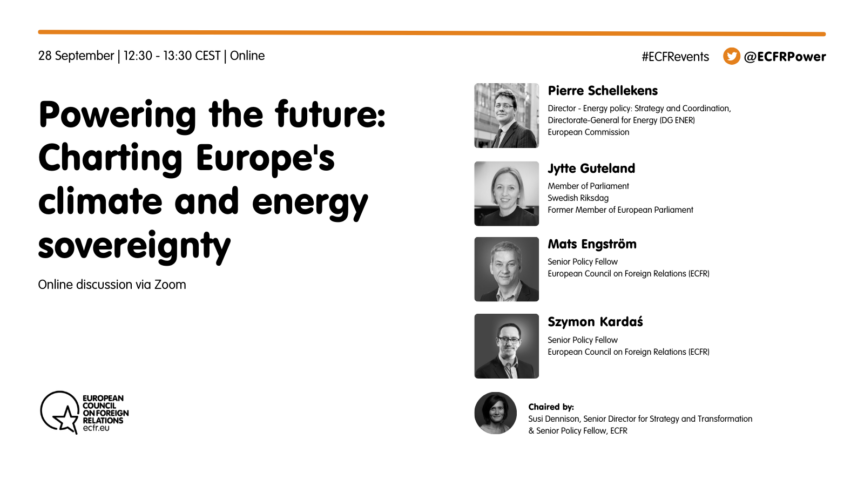
Referring to it as “our answer to the call of history”, European Commission President Ursula von der Leyen lauded the achievements of the European Green…

The EU cannot afford to stay divided on its green industrial policy. Instead, the next European Commission should spearhead a common and credible approach to ensure the bloc catches the next green technology wave

After the European Parliament election, the incoming EU institutions will likely prioritise security and competitiveness, complicating the path to climate action. Climate progressives will need compelling narratives, strategic resourcing, and diplomatic engagement to advance the best possible climate agenda over the next five years

The 2024 European Parliament elections will see a shift to the right in many countries and could mean that a populist right coalition emerges with a majority for the first time

Middle powers are shaping a fragmented world for which Europe is ill prepared. To protect its interests and values, the EU needs a foreign policy strategy that emphasises its wide range of interdependencies

In the run-up to a busy election year in Europe, there is a clear risk of a backlash against climate action. European policymakers need to emphasise the benefits of climate action to voters and update their policy instruments to the changing circumstances to keep the European Green Deal on course
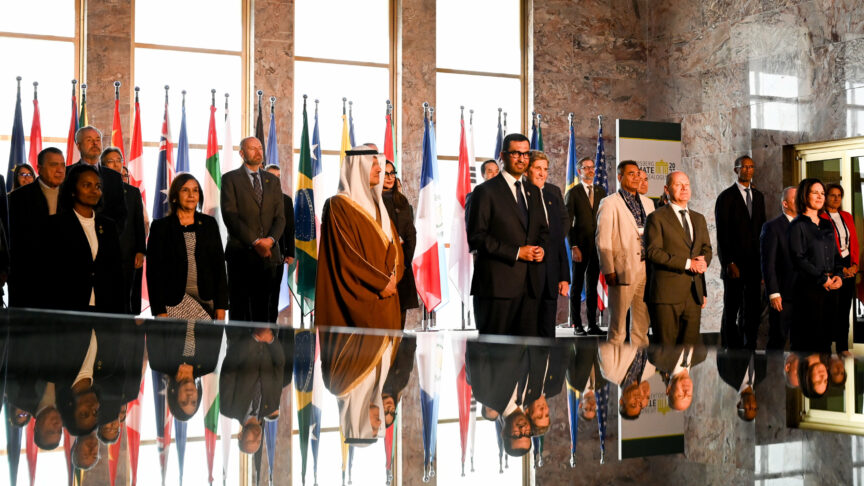
The EU’s status as a global leader on decarbonisation is in uncertain territory. It needs a new approach to climate diplomacy, centred in a broader political and economic relationship with its partners worldwide
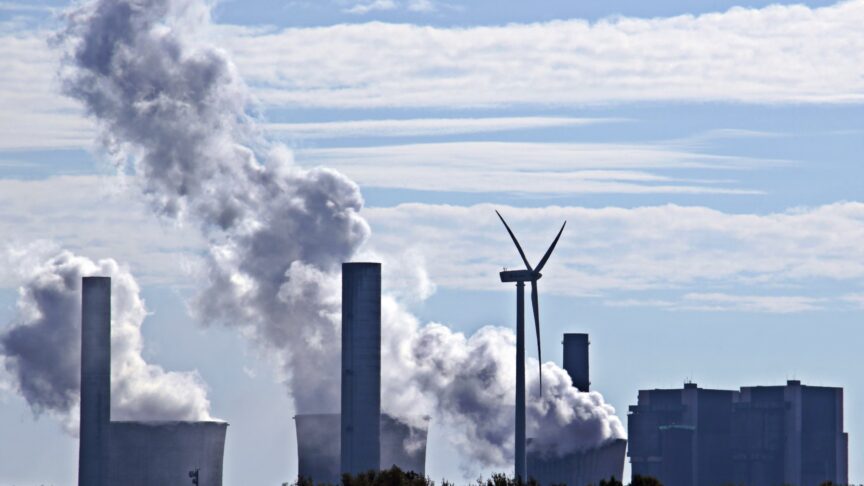
Russia’s war on Ukraine has weakened European governments’ commitment to EU climate goals. European leaders should intensify their efforts to build clean, sustainable energy security
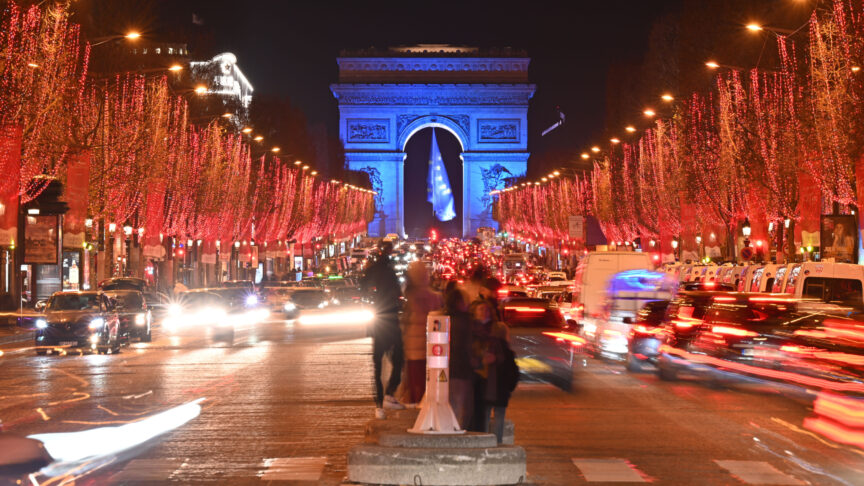
The next French president should pursue a strong European foreign policy agenda to protect Europeans against the threats they are most concerned about
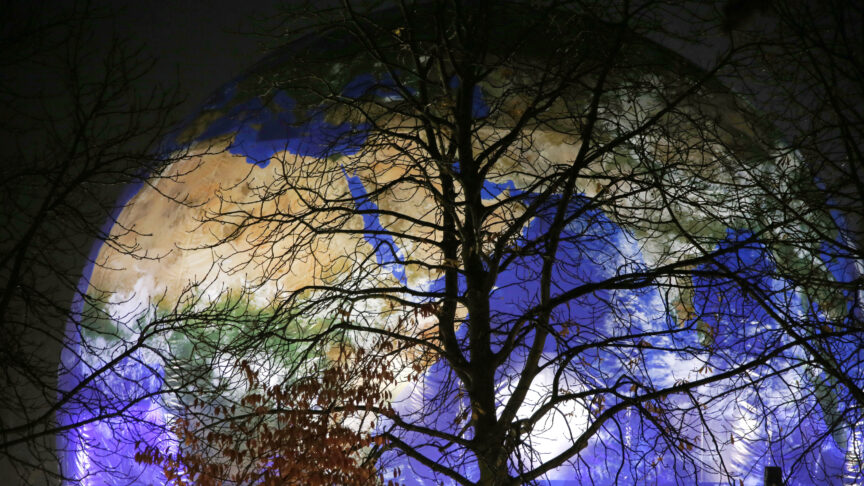
The bloc should reframe the international debate on energy security to focus on clean energy resources and efficiency, engaging in the market reforms needed to incentivise this shift
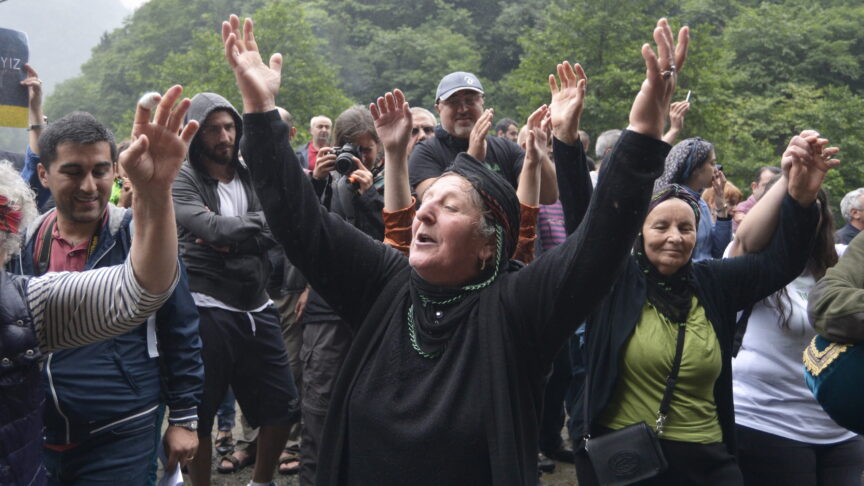
EU member states should help Turkey manage the impact of the new trade regulations the deal would bring in

As farmers’ protests spread across the EU, European leaders will need political courage to implement the next phase of the European Green Deal
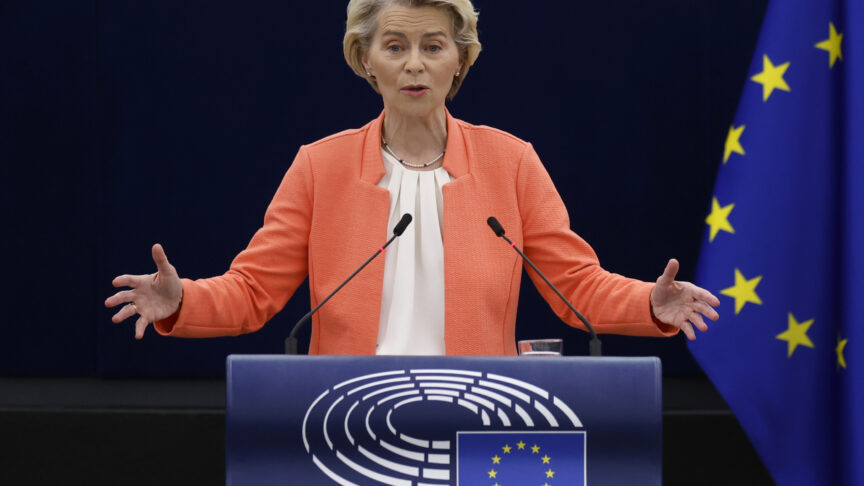
Ursula von der Leyen’s state of the EU address was defensive in tone – but one part of it could prove groundbreaking
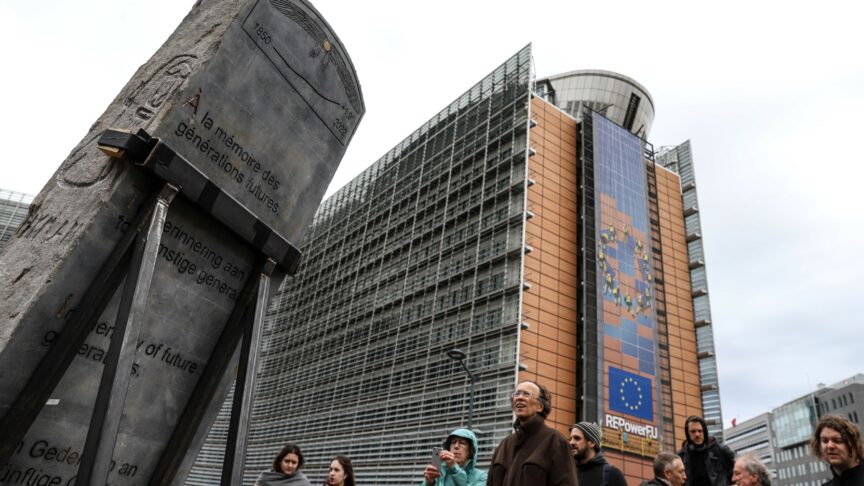
If Europeans pull back on their climate obligations, they will endanger both their green agenda and their competitiveness
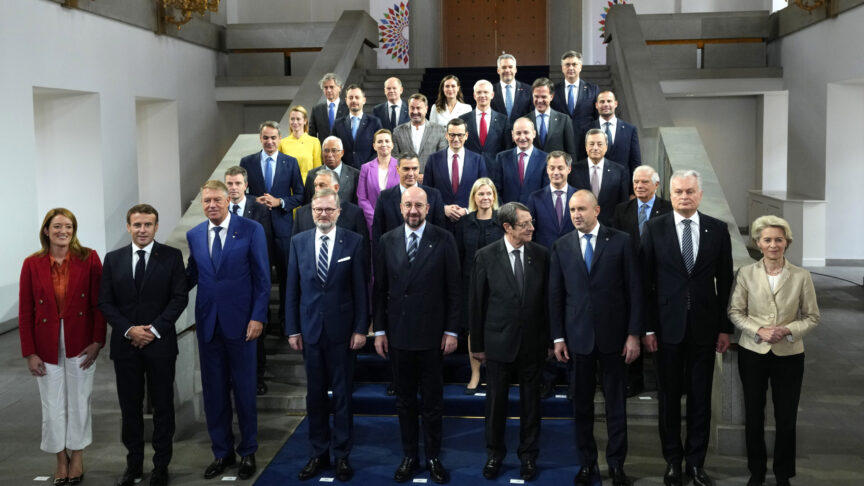
The EU and its member states have taken unprecedented steps to reduce their dependence on Russian energy resources. ECFR’s new EU Energy Deals Tracker documents Europeans’ agreements with new suppliers – and highlights four key lessons for policymakers
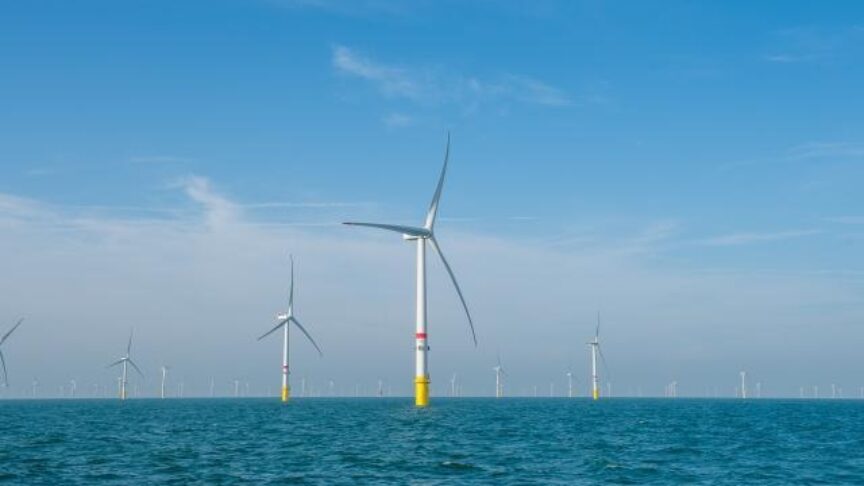
European leaders are realising that short-term fixes on gas supplies have long-term implications. They should include renewables in their deals with new suppliers to speed up the process of decarbonisation
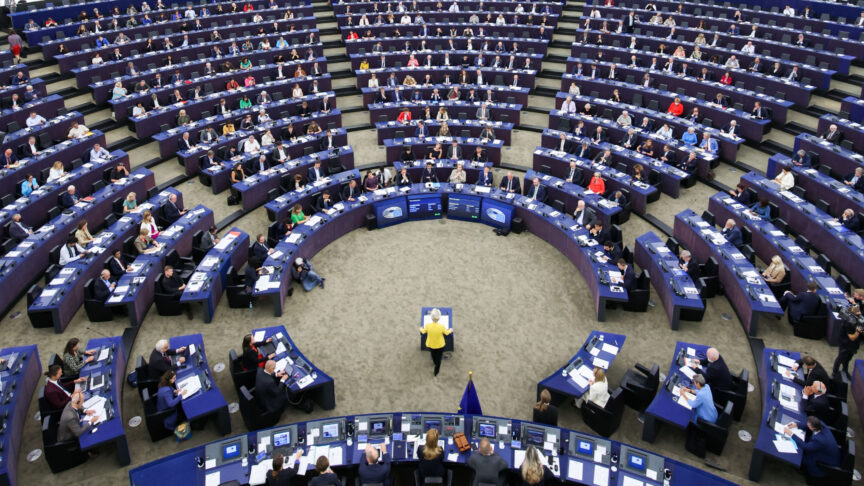
The European Commission president’s annual address has not pleased everybody – but its focus on energy reflects a deeper understanding of the nature of security today
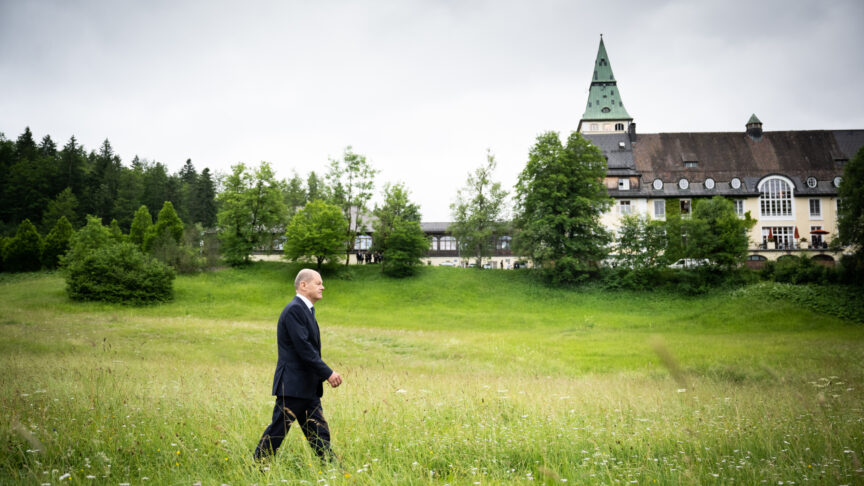
European leaders’ need to sanction Russia is pushing them to develop alternative sources of fuel. They should not lose sight of the role that clean energy could play in this
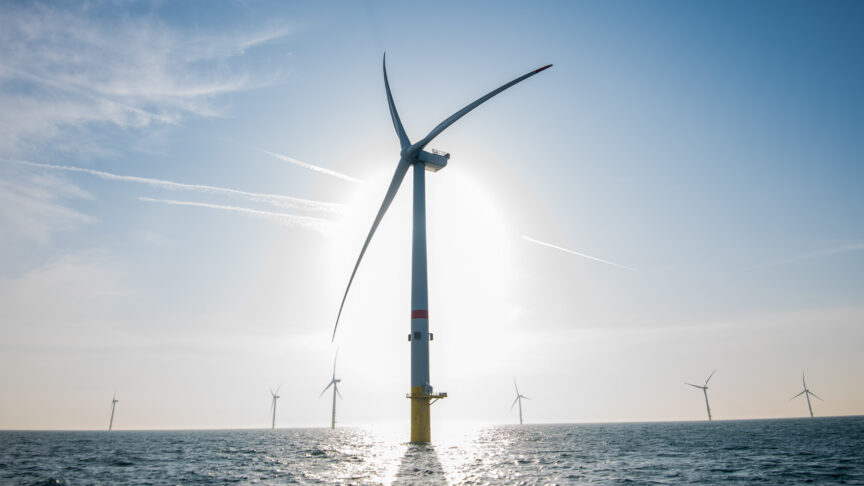
The EU can protect its energy security in the long term by transforming its approach to green diplomacy
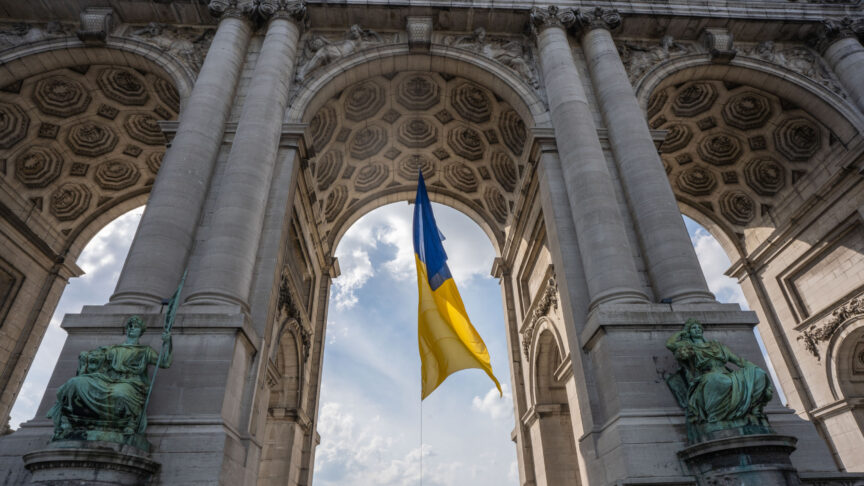
A new compact could allow Ukraine, Balkans states and others to move closer to the EU and drive reform more powerfully than the current rigid rules
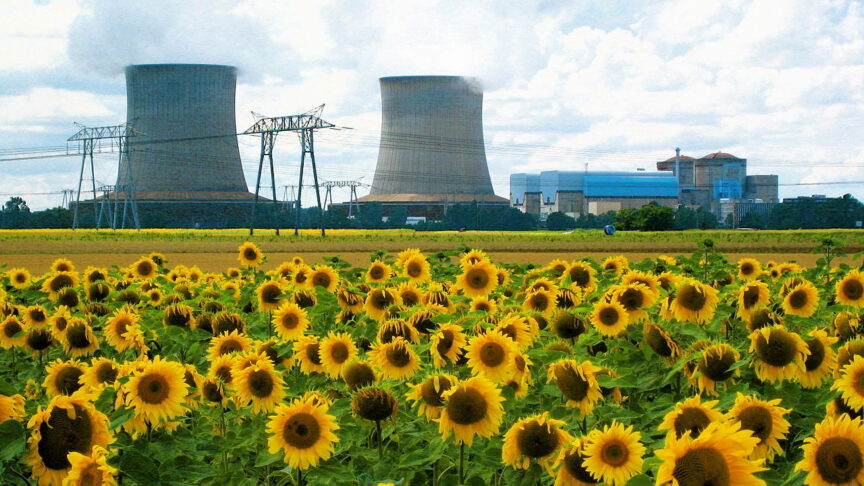
The roles of gas and nuclear power in the EU’s transitional energy mix present France with one of the first big fights of its EU presidency
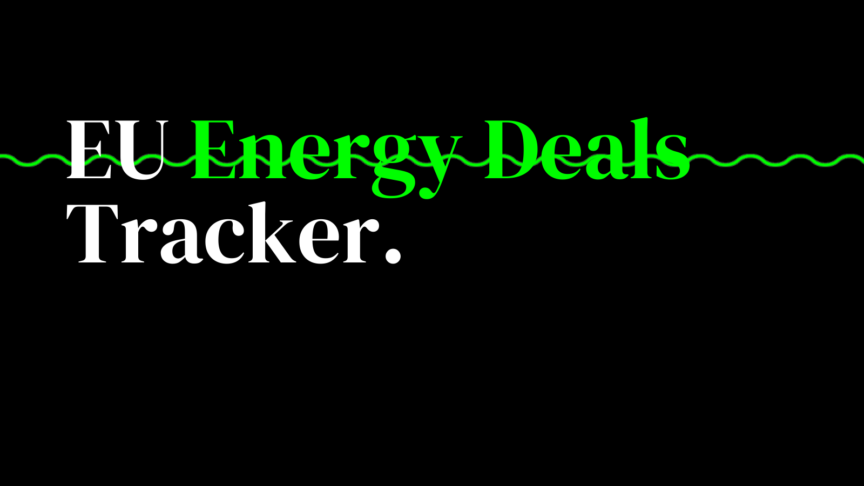
The energy deals the EU and its member states are now making with third countries will shape Europeans’ ability to protect their energy security in the long term. The EU Energy Deals Tracker provides a comprehensive overview of these agreements, including their implications for the sustainable transition
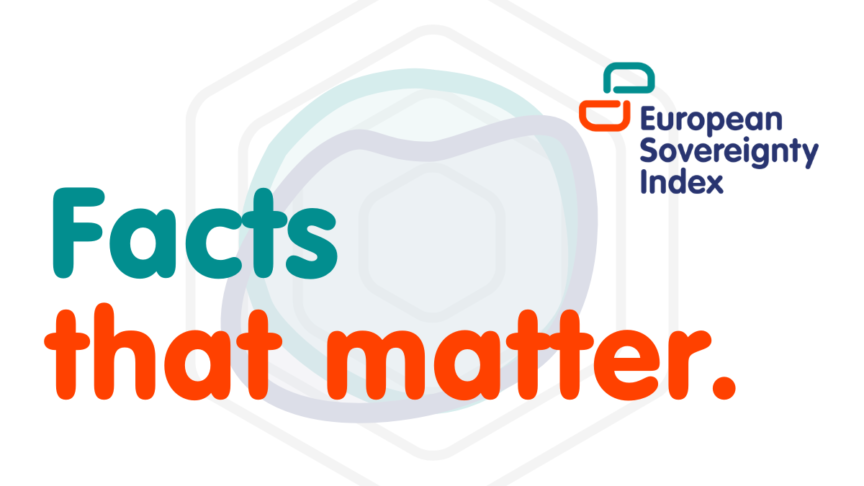
The EU can overcome the new challenges it faces and can shape the global order. To achieve this, Europeans will need to improve their joint capacity to act
New ECFR/YouGov research reveals huge fluidity in current voting intentions: 70 percent of Europeans certain to vote are yet to make their choice. Nearly 100m swing voters are up for grabs
Summary With anti-Europeans on their way to winning more than one-third of seats in the next European Parliament, the stakes in the May 2019 election…
Great power competition is increasingly shaping Europeans’ security environment, while other security threats are also on the rise, from terrorism and cyber attacks to climate change
Edited by Ulrike Esther Franke, Manuel Lafont Rapnouil & Susi Dennison
European leaders are underestimating the danger that Trump presents to the transatlantic alliance and assuming too much continuity in the event of a Clinton presidency
In the midst of a Schengen crisis, how do Europe's member states see the future of Europe's visa-free travel area?
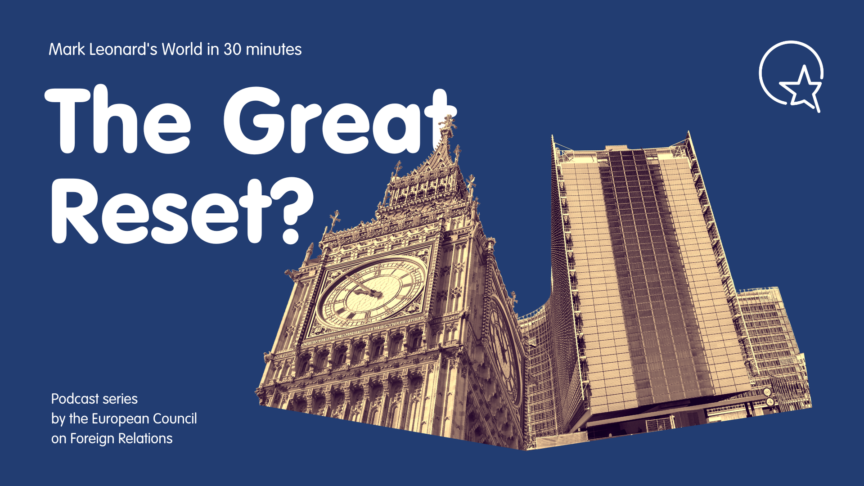
In this seventh episode of our mini-series , Mark Leonard and Susi Dennison talk to Nick Witney and Camille Grand about the potential for a great reset in UK-EU relations, especially regarding cooperation on defence

In this sixth episode of our mini-series, Mark Leonard and Susi Dennison talk to Philip Rycroft about the potential for a great reset in UK-EU relations

In this fifth episode of our new mini-series, Mark Leonard and Susi Dennison talk to Ivan Rogers about the potential for a great reset in UK-EU relations

In this fourth episode of our new mini-series, Mark Leonard and Susi Dennison talk to Nick Butler about the potential for a great reset in UK-EU relations

In this third episode of our new mini-series, Mark Leonard and Susi Dennison talk to Mujtaba Rahman about the potential for a great reset in UK-EU relations

In this second episode of our new mini-series, Mark Leonard and Susi Dennison talk to David Lidington about the potential for a great reset in UK-EU relations
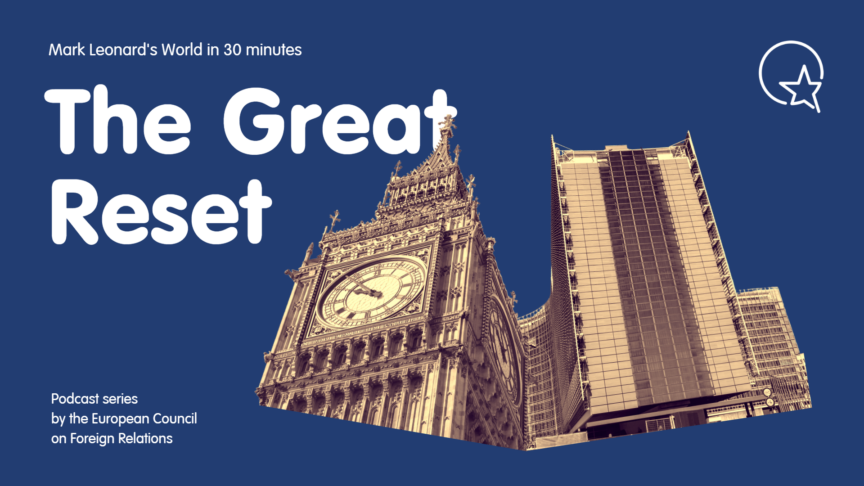
In the first episode of our new mini-series, Mark Leonard and Susi Dennison talk to Anand Menon about the potential for a great reset in UK-EU relations
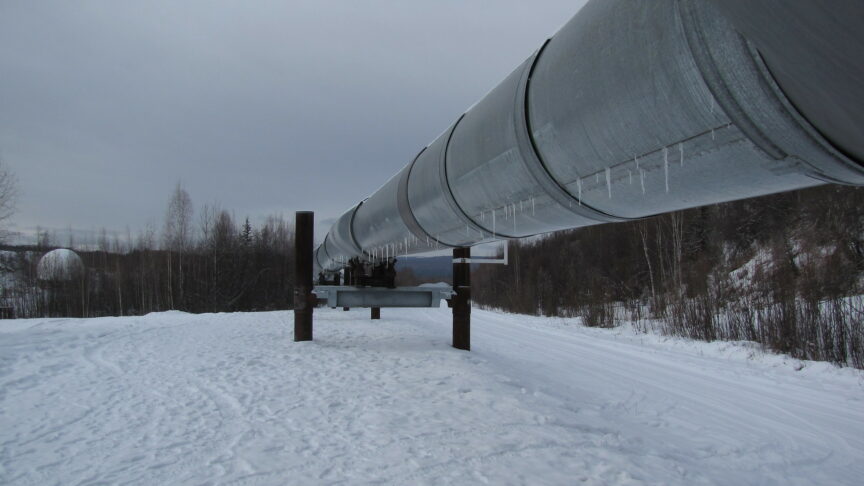
Can Europe remain true to its climate agenda despite Russia’s war in Ukraine?
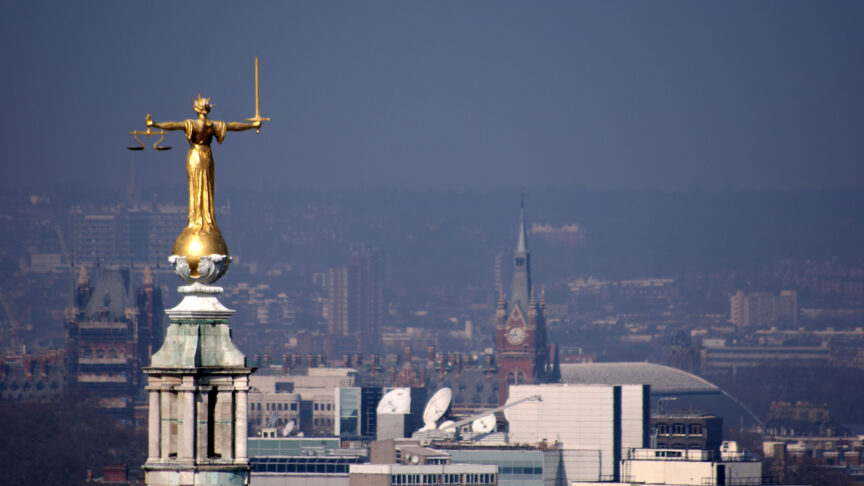
New ECFR research reveals that Europe’s remarkable unity in the early days of the war is under threat from an emerging split – between those who want peace as soon as possible and those who favour justice for Ukraine

How can the EU and member states close the gap between ambition and capability in their quest for European sovereignty?

Picture this scenario: the year is 2028 and Western intelligence services have reached an alarming conclusion. Credible sources suggest that China is about to impose…

As leaders are about to take pivotal decisions for Ukraine’s fate at the NATO summit, join us for a discussion about pathways and policy options for…

This webinar will provide a snapshot analysis of election results and their implications for Europe’s foreign policy and security agenda. Featuring perspectives from selected ECFR…

Referring to it as “our answer to the call of history”, European Commission President Ursula von der Leyen lauded the achievements of the European Green…
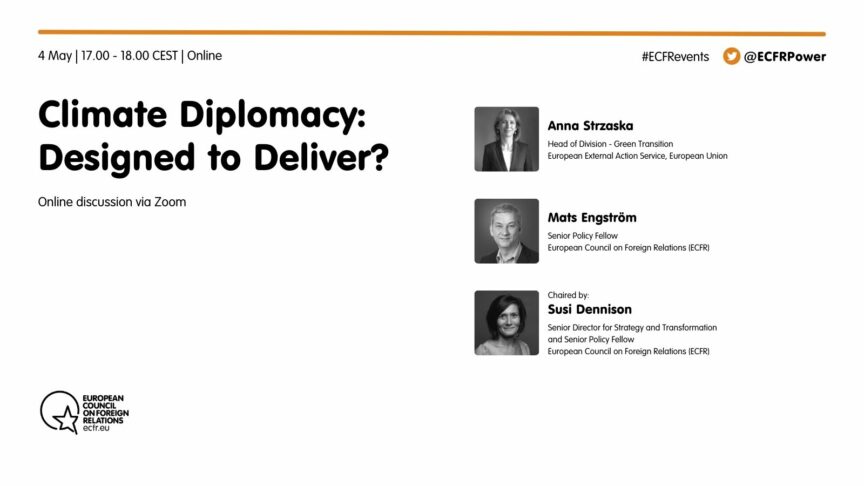
Against a backdrop of worldwide concern about energy and food insecurity in the wake of Russia’s invasion of Ukraine, COP27 took place, bringing attention to…
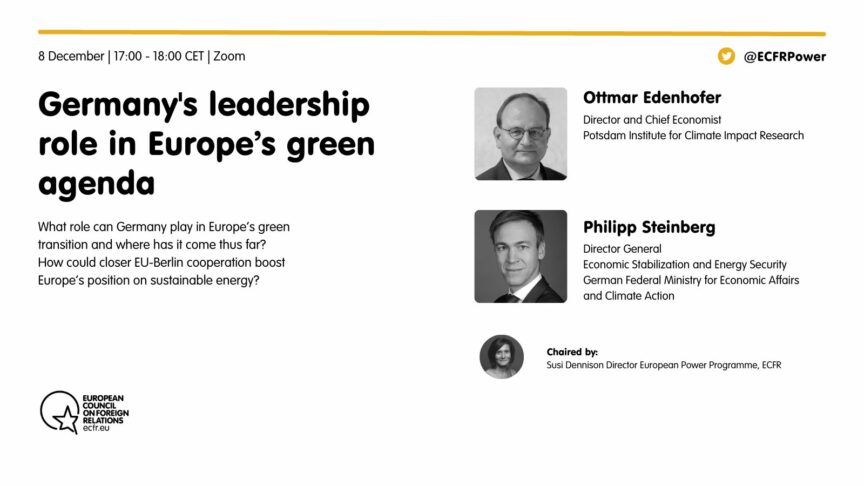
What role can Germany play in Europe’s green transition and where has it come thus far?
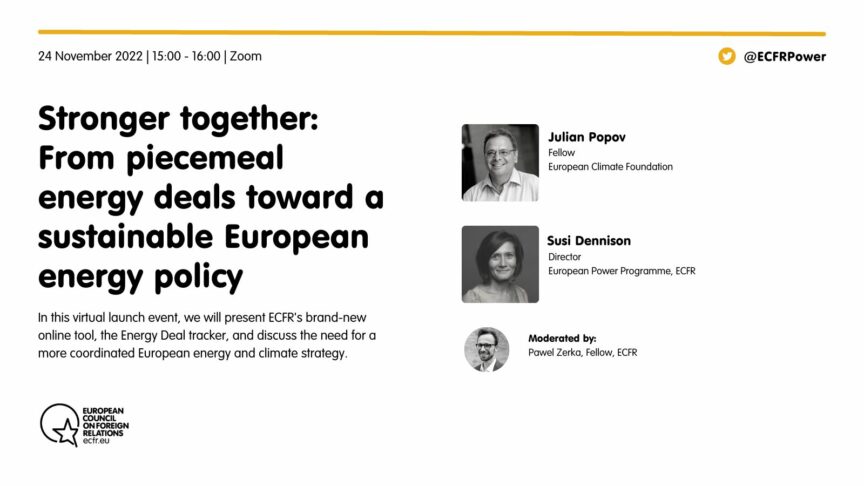
In this virtual launch event, we will present ECFR’s brand-new online tool, the Energy Deal tracker, and discuss the need for a more coordinated European energy and climate strategy
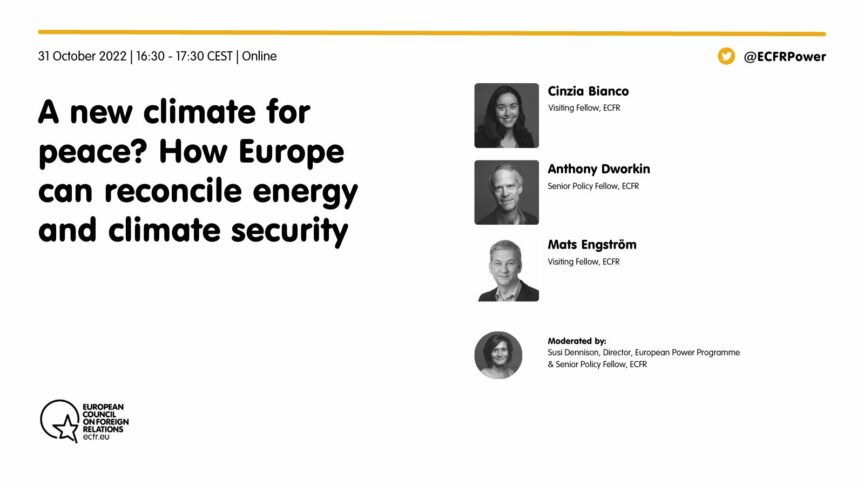
Cinzia Bianco, Mats Engström and Anthony Dworkin were in conversation with Susi Dennison to hear how Europe can best meet its energy security interests all the while preserving its credibility as a climate superpower
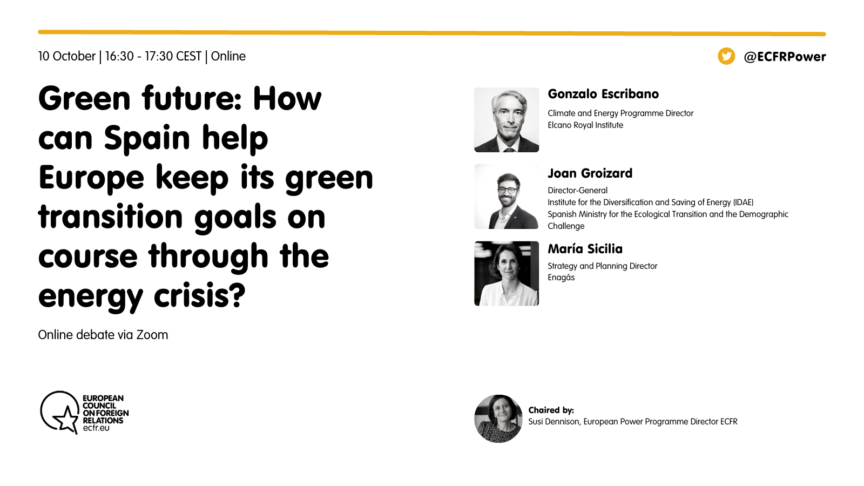
How can Madrid help in bringing other European member states on board in saving energy and investing in renewables?
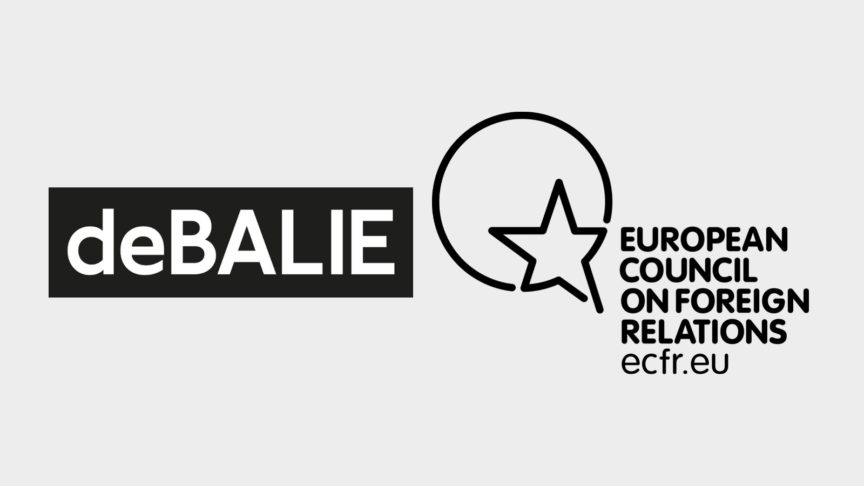
ECFR is collaborating with De Balie to discuss France’s political future and the impact of the election result on European integration and solidarity